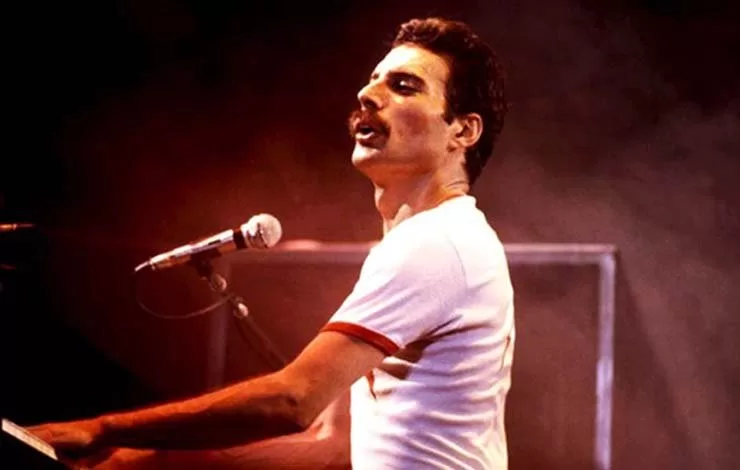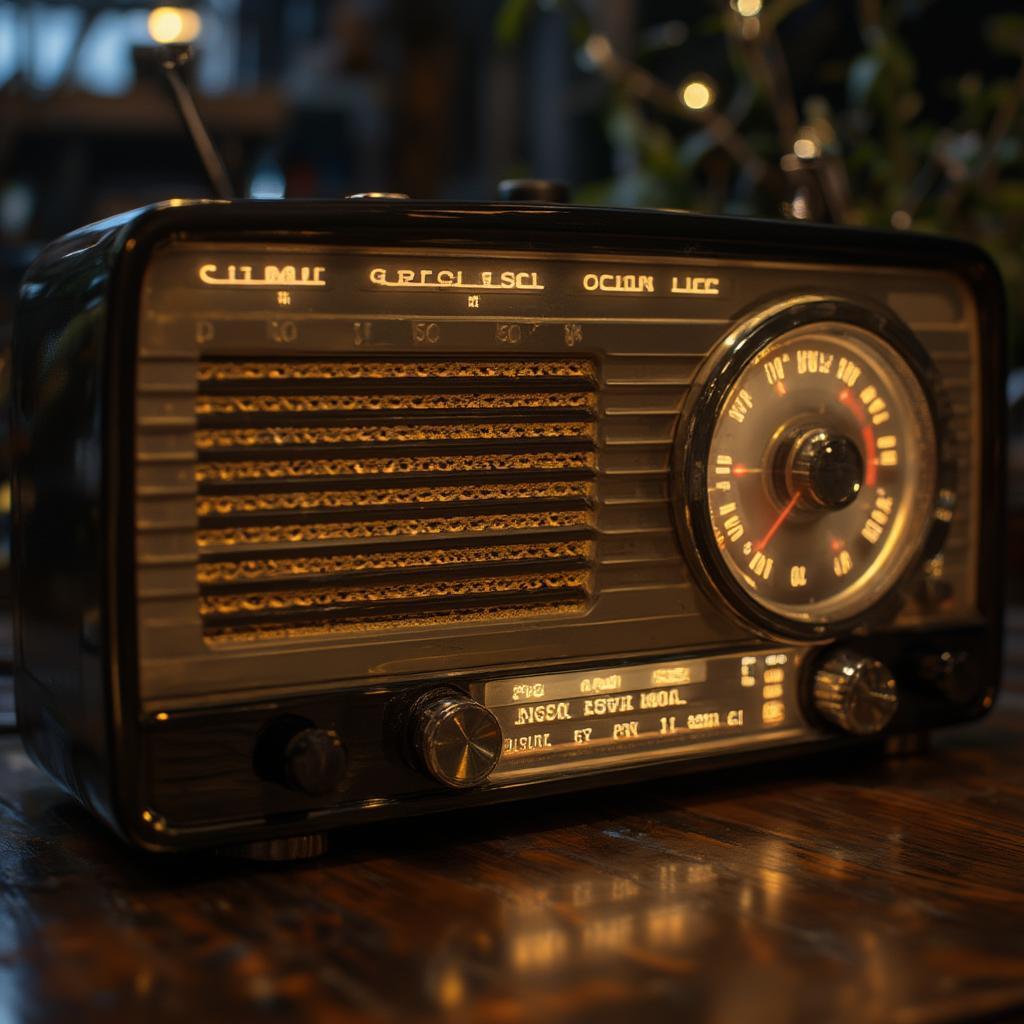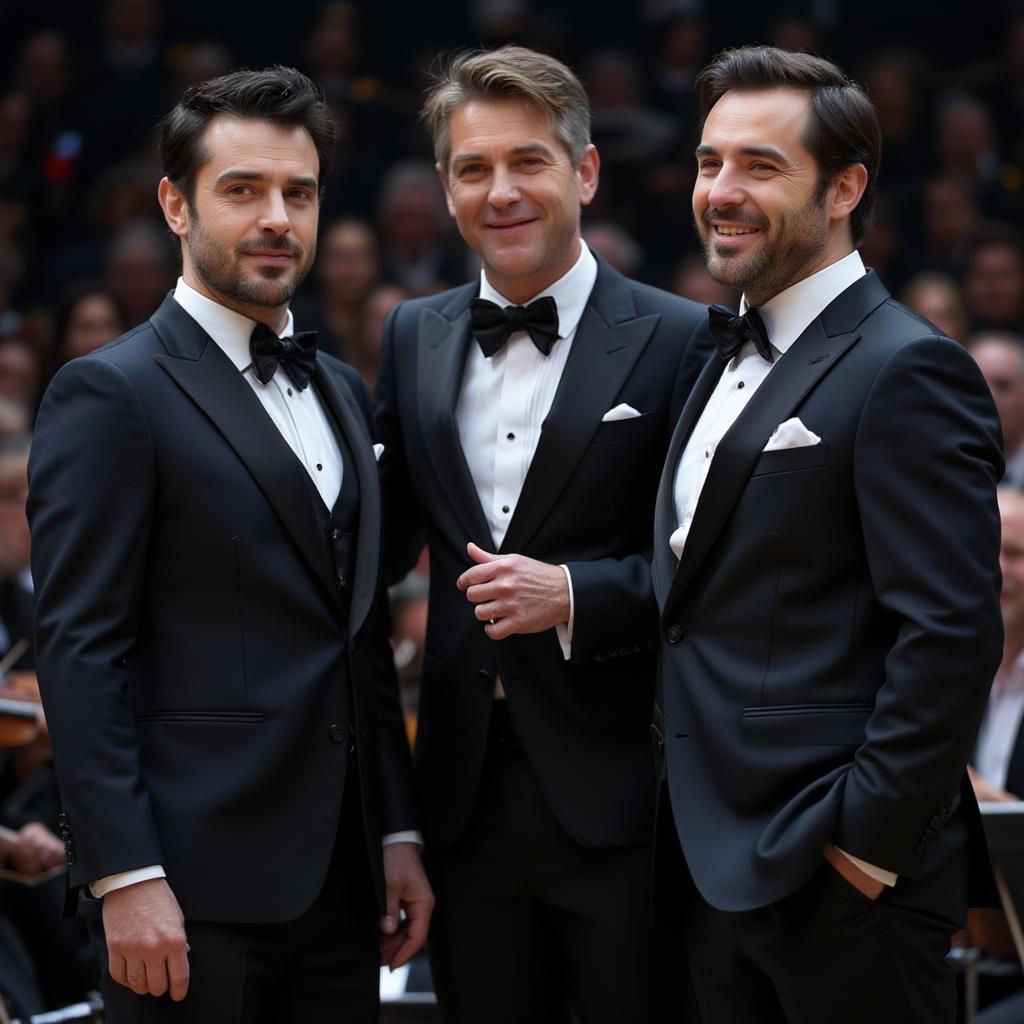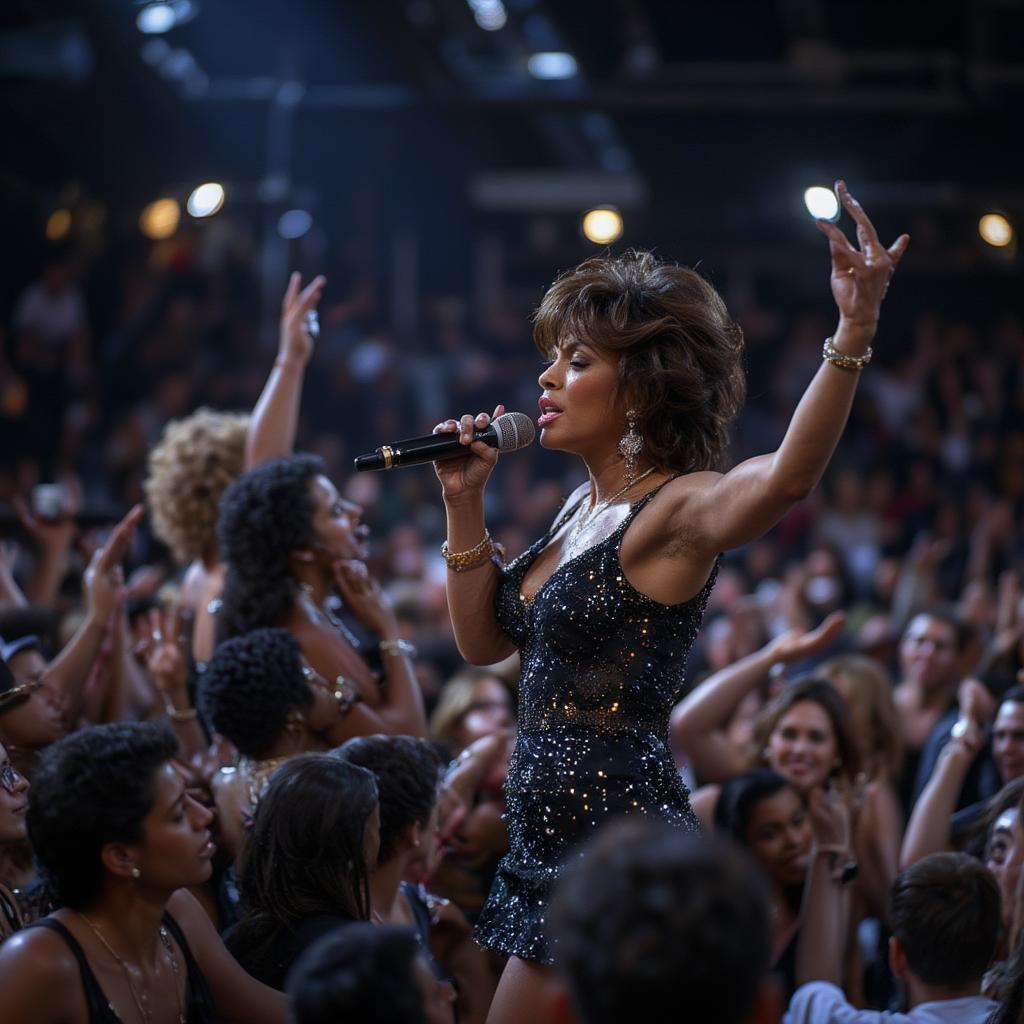Top 10 Freddie Mercury Famous Songs You Need to Hear

Freddie Mercury, the lead singer of the iconic band Queen, was known for his powerful vocals, charismatic stage presence, and incredible songwriting abilities. He is considered one of the greatest singers in the history of rock music, and his songs continue to be beloved by millions of fans worldwide. In this blog post, we will take a look at the top 10 Freddie Mercury famous songs that are a must-listen for any music lover.
Freddie Mercury famous songs
The following are some of Freddie Mercury’s most famous songs, with a brief explanation of their significance:
Bohemian Rhapsody
No list of Freddie Mercury’s famous songs can be complete without mentioning “Bohemian Rhapsody.” This epic rock ballad, released in 1975, is often cited as one of the greatest songs of all time. It showcases Mercury’s impressive vocal range and songwriting skills, with its complex structure and mix of different musical genres. The song spent nine weeks at the top of the UK charts and has been certified Diamond in the US, with over 10 million copies sold.
The Making of “Bohemian Rhapsody”
“Bohemian Rhapsody” was written entirely by Freddie Mercury, who reportedly came up with the idea for the song while lying in a bathtub. He presented the song to his bandmates, and they were initially hesitant to record it due to its unconventional structure. However, with Mercury’s persistence and guidance, they were able to create a masterpiece that has stood the test of time.
The song was recorded in various studios, including Rockfield Studios, Sarm East Studios, and Trident Studios. It was produced by Roy Thomas Baker, who used an innovative technique of multi-tracking to create the layered vocals in the song’s operatic section. This technique was previously unheard of in popular music and added to the song’s unique sound.
Impact and Legacy of “Bohemian Rhapsody”
“Bohemian Rhapsody” has had a lasting impact on the music industry and has become a cultural phenomenon. It has been covered by numerous artists, featured in movies and TV shows, and is a staple at live performances and karaoke nights. The song’s popularity was further boosted by the release of the biographical film “Bohemian Rhapsody” in 2018, which grossed over $900 million worldwide.
The song’s enduring appeal can also be attributed to its universal themes of love, loss, and self-exploration. Its lyrics, which are open to interpretation, have resonated with people of all ages and backgrounds. “Bohemian Rhapsody” will always be remembered as one of Freddie Mercury’s most iconic songs and a defining moment in the history of rock music.
We Are the Champions
“We Are the Champions” is another anthem of Queen that has become synonymous with sports victories and celebrations. Released in 1977, the song was written by Freddie Mercury as a tribute to their loyal fanbase and became an instant hit. It has since become one of the band’s signature songs and is often played at major sporting events and concerts.
Writing and Recording of “We Are the Champions”
Freddie Mercury wrote “We Are the Champions” after attending a Queen concert where the audience sang along to every song. He was inspired by their enthusiasm and wanted to create a song that they could sing together in unison. The track was recorded at Wessex Studios, with Brian May playing guitar and Mercury providing lead vocals, piano, and handclaps.
The song’s simplicity, with its memorable chorus and powerful vocals, struck a chord with listeners. It has been covered by various artists, including Beyoncé, Green Day, and Lady Gaga, and has been used in commercials, movies, and TV shows. The song’s longevity and continued relevance prove that it truly is a champion among Freddie’s famous songs.
Impact and Legacy of “We Are the Champions”
“We Are the Champions” has become an anthem for underdogs, a reminder to never give up and keep fighting till the end. It has been embraced by sports teams and fans worldwide, with its uplifting message of resilience and determination. The song has cemented its place as one of Queen’s greatest hits and continues to inspire generations of music lovers.
Somebody to Love
Released in 1976, “Somebody to Love” is a powerful ballad that showcases Freddie Mercury’s vocal abilities like no other. It was written by Mercury, who drew inspiration from gospel music and his own personal struggles. The song is a fan favorite, and it has been covered by many artists, including George Michael, Brittany Murphy, and Shawn Mendes.
Writing and Recording of “Somebody to Love”
Freddie Mercury wrote “Somebody to Love” while he was living with Mary Austin, his longtime partner. The lyrics reflect his yearning for true love and connection, which he felt he lacked despite his fame and success. The song’s gospel-inspired arrangement, complete with a choir and piano, adds to its emotional impact and showcases Mercury’s range and control as a vocalist.
The recording process for this song was challenging, with the band spending over three weeks in the studio perfecting the vocals and harmonies. They used a technique called “overdubbing,” where each band member recorded their vocals separately and then layered them on top of each other. This resulted in a rich and multi-dimensional sound that made the song stand out.
Impact and Legacy of “Somebody to Love”
“Somebody to Love” remains one of Queen’s most beloved songs and a testament to Freddie Mercury’s vocal talents. It has been featured in movies, TV shows, and commercials, and is a staple at Queen’s live performances. The song’s message of longing and searching for love has universal appeal, making it a timeless classic.
Don’t Stop Me Now
“Don’t Stop Me Now” is an upbeat and energetic song that showcases Freddie Mercury’s playful and fun side. Released in 1978, it was written by Mercury after the band’s successful performance at Madison Square Garden. The song’s catchy tune and lyrics make it a crowd-pleaser, and it has become one of Queen’s most popular songs.
Writing and Recording of “Don’t Stop Me Now”
Mercury wrote “Don’t Stop Me Now” while he was on tour with the band. He wanted to create a song that would get the audience on their feet and dancing, and this track certainly does that. The song’s lyrics are about living life to the fullest and having a good time, which reflects Mercury’s larger-than-life personality.
The song was recorded at Super Bear Studios in France, with the band using a variety of instruments, including piano, guitar, drums, and bass. The song’s fast-paced tempo and Freddie’s powerful vocals make it a challenging song to perform, but the result is a high-energy and unforgettable hit.
Impact and Legacy of “Don’t Stop Me Now”
“Don’t Stop Me Now” is loved by fans for its infectious energy and positive message. It has been featured in movies, TV shows, and commercials, and has been covered by artists such as The Chipmunks, McFly, and Panic! at the Disco. The song’s enduring popularity is a testament to Freddie Mercury’s ability to connect with his audience and create music that makes people feel alive.
Killer Queen
“Killer Queen” was the breakthrough single for Queen, released in 1974. It was written by Freddie Mercury and became their first top 40 hit in the US. The song’s clever lyrics, catchy melody, and Mercury’s flamboyant delivery helped establish the band’s signature sound and style.
Writing and Recording of “Killer Queen”
Freddie Mercury wrote “Killer Queen” after observing the high society women he encountered while living in London. He was fascinated by their lifestyles and wanted to capture their charm, wit, and poise in a song. The result is a clever and playful track that showcases Mercury’s ability to tell a story through music.
The song was recorded at Trident Studios in London, with producer Roy Thomas Baker adding layers of piano, guitar, and vocal harmonies to create a unique and extravagant sound. The song’s success helped launch Queen into international stardom and paved the way for their future hits.
Impact and Legacy of “Killer Queen”
“Killer Queen” has become an iconic song in Queen’s discography and a fan favorite at live performances. It has been covered by artists such as Katy Perry, The Flaming Lips, and Sum 41. The song’s influence can also be seen in the fashion and pop culture of the era, with its references to luxury and glamour. “Killer Queen” will always be remembered as one of Freddie Mercury’s most memorable songs.
Crazy Little Thing Called Love
“Crazy Little Thing Called Love” is a departure from Queen’s usual rock sound, but it became one of their biggest hits upon its release in 1979. It was written by Freddie Mercury, who was inspired by the rock ‘n’ roll music of the 1950s. The song’s simple yet catchy melody and playful lyrics make it a fun and enjoyable tune to listen to.
Writing and Recording of “Crazy Little Thing Called Love”
Mercury wrote “Crazy Little Thing Called Love” in just 10 minutes, playing it on his guitar and recording it on a cassette tape. The song was recorded at Musicland Studios in Germany, with Mercury providing vocals, guitar, and piano, and Roger Taylor playing drums. The band wanted to create a more stripped-down sound for this song, using fewer instruments and focusing on Mercury’s vocals.
The song’s upbeat tempo and catchy chorus make it a popular choice for cover artists and have been featured in commercials, TV shows, and movies. “Crazy Little Thing Called Love” continues to be one of Queen’s most loved songs and a testament to their versatility as a band.
Impact and Legacy of “Crazy Little Thing Called Love”
“Crazy Little Thing Called Love” has become a staple at weddings and parties, with its romantic lyrics and lively melody. It has been covered by artists such as Michael Bublé, Taylor Swift, and Dwight Yoakam. The song’s popularity proves that Freddie Mercury’s music transcends genres and generations.
Under Pressure
Released in 1981, “Under Pressure” is a collaboration between Queen and David Bowie, resulting in one of their most successful songs. The track was written by all five members of the band and became an instant hit, reaching number one in the UK charts. Its memorable bassline and iconic vocal duet have made it a timeless classic.
Writing and Recording of “Under Pressure”
Freddie Mercury and David Bowie wrote “Under Pressure” during a jam session at Mountain Studios in Switzerland. They initially did not intend for it to be released as a single, but after producer Reinhold Mack added additional instrumentation and production, it became one of Queen’s most recognizable songs.
The song’s lyrics are about the pressure of everyday life and the struggle to keep up with society’s expectations. Its powerful message and moving vocal performances from both Freddie Mercury and David Bowie have resonated with listeners worldwide.
Impact and Legacy of “Under Pressure”
“Under Pressure” has become an anthem for those struggling with mental health and societal pressures. It has been covered by artists such as The Used, My Chemical Romance, and The Flaming Lips. The song has been sampled in many songs and continues to be a fan favorite at Queen’s live performances.
Radio Ga Ga
“Radio Ga Ga” was released in 1984 as the first single from Queen’s album “The Works.” It was written by Roger Taylor and became one of their biggest hits, reaching number one in 19 countries. The song’s message and catchy chorus have made it a fan favorite and a staple on classic rock radio stations.
Writing and Recording of “Radio Ga Ga”
Roger Taylor wrote “Radio Ga Ga” after being inspired by his son’s obsession with radio and television. He wanted to create a song that would appeal to younger audiences while still retaining Queen’s signature sound. The band recorded the song at The Record Plant in Los Angeles, with Taylor providing vocals, drums, and keyboards and Freddie Mercury adding backing vocals.
The song’s music video, directed by David Mallet, featured footage from the silent film “Metropolis,” further adding to its popularity and cultural significance. “Radio Ga Ga” has been covered by bands such as Erasure, Electric Six, and Foo Fighters, and its impact can still be seen in popular culture today.
Impact and Legacy of “Radio Ga Ga”
“Radio Ga Ga” has become a classic rock anthem and an ode to the power of music and radio. Its inclusion in the Live Aid concert in 1985, where Freddie Mercury led the audience in a chant of “Radio Ga Ga,” cemented its place as one of Queen’s most iconic songs. The song’s legacy continues today, with its relevance in the digital age and its message of the enduring influence of music.
I Want to Break Free
“I Want to Break Free” is a fan favorite and one of Queen’s most well-known songs, with its music video becoming an instant classic. Released in 1984, it was written by bassist John Deacon and reached number three on the UK charts. Its catchy chorus and rebellious lyrics have made it a beloved song for generations.
Writing and Recording of “I Want to Break Free”
John Deacon wrote “I Want to Break Free” as a response to his frustrations with the media’s portrayal of the band. He wanted to create a song that would reflect Queen’s desire to break free from stereotypes and expectations. The song was recorded at The Record Plant in Los Angeles, with Deacon providing bass, keyboards, and guitar, and Mercury adding backing vocals.
The music video for this song is one of the most memorable in music history, with the band members dressed in drag, parodying a popular British soap opera. The video caused controversy upon its release but has since become an iconic moment in Queen’s career.
Impact and Legacy of “I Want to Break Free”
“I Want to Break Free” continues to be a fan favorite at live performances and has been covered by artists such as Pink, Adam Lambert, and Panic! at the Disco. Its message of individuality and freedom resonates with people of all ages, making it one of Queen’s most enduring songs.
Top 10 Famous Male Singers of the 70s You Need to Know
The Show Must Go On
“The Show Must Go On” was released in 1991, just weeks before Freddie Mercury’s death. It became a symbol of his strength and determination, and his final vocal performance is considered by many as one of his best. The song was written by all four members of the band and reached number two on the UK charts.
Writing and Recording of “The Show Must Go On”
“The Show Must Go On” was written as a tribute to Freddie Mercury’s unwavering spirit and courage, even in the face of death. Brian May took lead vocals on this track, with Mercury providing backing vocals and playing piano. The song was recorded at Olympic Studios in London and features a powerful guitar solo by May.
The song’s message of resilience and perseverance has resonated with fans, and it has become one of Queen’s most iconic songs. It is often used as a tribute to Freddie Mercury at concerts and events, showcasing his legacy and impact on the music industry.
Impact and Legacy of “The Show Must Go On”
“The Show Must Go On” is a testament to Freddie Mercury’s strength and determination, even in the face of adversity. It has been covered by artists such as Elton John, Celine Dion, and Robbie Williams, and is considered one of Queen’s greatest hits. The song’s emotional impact and relevance have only grown over the years, making it a fitting tribute to the legendary singer.
Conclusion
Freddie Mercury’s legacy as an artist and performer continues to live on through his music, with his songs becoming timeless classics. From epic rock ballads to upbeat anthems, his powerful vocals and captivating stage presence have left an indelible mark on the world of music.
This list of his top 10 famous songs only scratches the surface of his incredible talent, but it is a testament to his enduring impact on the music industry. Freddie Mercury may be gone, but his music will always be remembered and celebrated by generations to come.
50 Years of Rock and Roll A Look Back at the Evolution of a Genre


















